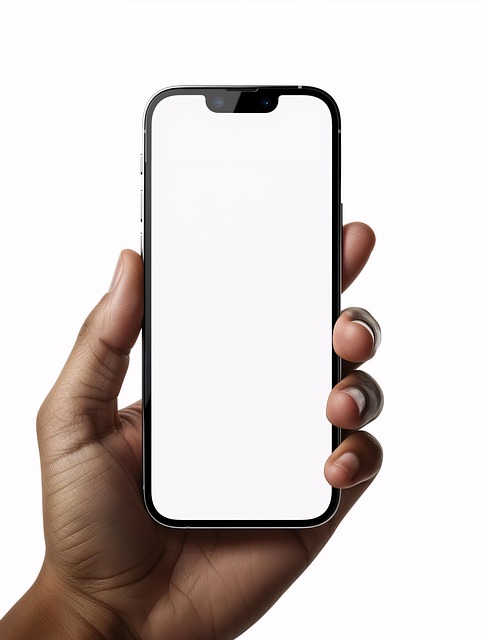Beaufort residents face a robocall nuisance, with informational and marketing calls requiring distinct handling. Unwanted call lawyers in South Carolina provide guidance on legal protections, helping consumers differentiate between essential updates and harassing sales tactics. Businesses must adhere to TCPA regulations by distinguishing informational from marketing calls to avoid significant fines and lawsuits. Legitimate informational robocalls offer crucial data, while reputable firms use them for free consultations, ensuring responsible legal education. Key terms: Unwanted call Lawyer SC, Unwanted call attorney SC, etc.
In Beaufort, navigating the landscape of robocalls can be a frustrating and confusing experience. This guide aims to demystify the distinction between informational and marketing robocalls. We’ll explore the definition, purpose, and legalities of each, providing examples to enhance clarity. Understanding when a call crosses the line into the unwanted becomes crucial, as it triggers consumer rights and potential legal avenues through an Unwanted Call Lawyer in South Carolina. By familiarizing yourself with these concepts, you can better protect yourself from intrusive or malicious marketing practices, leveraging the expertise of specialized attorneys for peace of mind.
Understanding Informational Robocalls
In Beaufort and across South Carolina, many residents often encounter a persistent issue with unwanted robocalls. These automated calls, while annoying, can fall into two distinct categories: informational and marketing. Informational robocalls are typically non-commercial in nature, serving as a means of communication from government agencies, healthcare providers, or educational institutions. They may notify individuals about important updates, upcoming events, or changes to services they use or access. For instance, a local school might call parents regarding a sudden change in pick-up times due to an unexpected event.
When a robocall is for marketing purposes, the intent is clear: to promote a product, service, or event and often involves businesses trying to reach potential customers. These calls can be more frequent and may include sales pitches, offers of free trials, or requests for personal information. Unwanted call lawyers in South Carolina, like those at reputable law firms across the state, help residents navigate this complex issue. They offer guidance on how to handle these calls, provide insights into legal protections against excessive or misleading robocalls, and assist individuals who have been harmed by such practices, ensuring residents’ peace of mind and rights are respected in Beaufort and beyond.
– Definition and purpose
In Beaufort, South Carolina, the distinction between informational and marketing robocalls is crucial to understand, especially with the rise of unwanted calls. Informational robocalls serve a legitimate purpose by providing important updates or notifications from businesses, government agencies, or healthcare providers. These calls often share time-sensitive information or alerts that are essential for recipients’ well-being or business operations. On the other hand, marketing robocalls, also known as sales or promotional calls, are initiated with the primary goal of selling products or services. They can be more intrusive and often rely on automated messages to reach a large number of potential customers.
For Beaufort residents facing unwanted calls, it’s vital to know their rights and options. If you’ve received robocalls that you believe are inappropriate or violate your privacy, consulting with an experienced unwanted call lawyer SC or unwanted call attorney SC can be beneficial. Reputable unwanted call law firms South Carolina specialize in defending consumers’ rights against excessive or harassing marketing calls. They can guide you on how to navigate legal protections and potentially help secure compensation for any resulting distress or financial loss.
– Legal implications for businesses
In Beaufort, as in much of South Carolina, businesses must navigate the legal landscape surrounding robocalls carefully. Making unwanted or deceptive calls is a significant concern, with strict regulations in place to protect consumers from harassment and misinformation. Both informational and marketing robocalls have distinct legal implications; understanding this difference is crucial for businesses aiming to comply with the law.
For businesses, employing an unwanted call lawyer SC or seeking guidance from a reputable unwanted call attorney SC or law firm South Carolina is advisable. These professionals can help ensure that automated calls are made responsibly, adhering to state and federal guidelines, including the Telephone Consumer Protection Act (TCPA). Failing to do so can result in substantial fines, lawsuits, and damage to a company’s reputation. Therefore, businesses should be proactive in their approach to robocalling practices to avoid legal repercussions and maintain consumer trust.
– Examples of legitimate informational calls
In Beaufort, as across the nation, many individuals receive what are known as informational robocalls. These calls provide valuable information on a variety of topics, from health and wellness updates to community event reminders. Legitimate informational calls often include pre-recorded messages that offer useful data without any attempt to sell or promote a product or service. For instance, local utility companies may call to inform residents about scheduled maintenance or changes in service times. Similarly, educational institutions could use robocalls to announce important dates on the academic calendar or provide reminders for upcoming exams.
Another example of a legitimate informational call involves legal services. Unwanted call lawyers and attorneys in South Carolina may contact individuals to offer free consultations regarding consumer rights, personal injury cases, or other legal matters. These calls are aimed at educating potential clients about their options and providing guidance rather than trying to generate immediate sales or conversions. Those who receive such calls from reputable unwanted call law firms in South Carolina can rest assured that their information is being used responsibly and for the purpose of delivering valuable insights, not intrusive marketing tactics.






